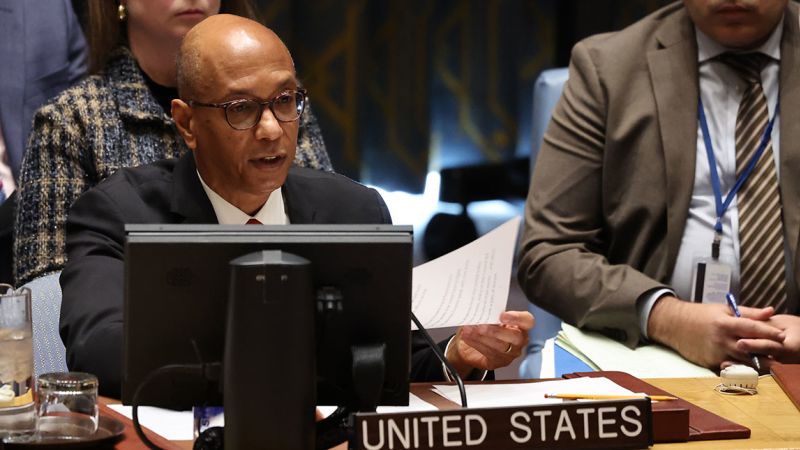
US vetoes UN resolution on Gaza ceasefire, saying it doesn’t guarantee release of hostages
CNN
The United States has vetoed a UN Security Council resolution that called for an immediate, unconditional and permanent ceasefire in Gaza, on the grounds it would not have secured the release of hostages.
The United States has vetoed a UN Security Council resolution that called for an immediate, unconditional and permanent ceasefire in Gaza, on the grounds it would not have secured the release of hostages. “We made clear throughout negotiations we could not support an unconditional ceasefire that failed to release the hostages. Because, as this council has previously called for, a durable end to the war must come with the release of the hostages,” Deputy US Ambassador Robert Wood said following the veto Wednesday. “These two urgent goals are inextricably linked. This resolution abandoned that necessity, and for that reason, the United States could not support it,” Wood added. Seven American citizens are still being held in Gaza. “We will not forget them,” he said. The resolution put to the 15-member council by its 10 non-permanent members demanded an “immediate, unconditional and permanent ceasefire to be respected by all parties; and further reiterates its demand for the immediate and unconditional release of all hostages.” However, US officials said the language was not strong enough as it did not condition the ceasefire on the release of the hostages.

The governments of Mexico and the United States signed a memorandum of understanding on Thursday to fund and expedite several wastewater treatment projects in the Tijuana River basin. Untreated wastewater continually affects residents living along the river, which flows across the border from Tijuana and through several of San Diego’s southern neighborhoods.





















 Run 3 Space | Play Space Running Game
Run 3 Space | Play Space Running Game Traffic Jam 3D | Online Racing Game
Traffic Jam 3D | Online Racing Game Duck Hunt | Play Old Classic Game
Duck Hunt | Play Old Classic Game










